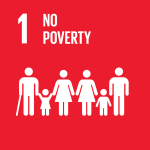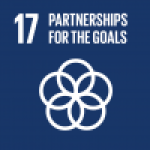
Photo: UNDP Guinea
Conakry, 11 July 2023 – The Guinean government, with support from the United Nations Development Programme (UNDP), have officially launched a new project to increase the climate resilience and adaptive capacity of the most vulnerable communities in Guinée forestière (Forested Guinea).
With a focus on women and youth, the five-year US$8.85 million project is expected to directly benefit more than 651,800 people in the eight municipalities of Koulé, Kokota, Niosomoridou, Diécké, Bignamou, Wassérédou, Gouécké, and Mousadou through the introduction of climate-smart agricultural practices, enhanced access to microcredit, and improved utilisation of climate information.
Minister of Environment and Sustainable Development, Mrs. Safiatou Diallo welcomed the start of implementation, saying, “From rising temperatures to heavy rains, we are already seeing the effects of climate change across the country. Building resilience is an urgent priority and we look forward to working closely with UNDP, as well as local communities and other stakeholders, to ensure the success of this important project."
Forested Guinea is one of the most vulnerable regions in West Africa to climate change, with communities facing multiple risks such as floods, storms and landslides. These risks – exacerbated by deforestation and land degradation – are expected to worsen as the effects of global climate change accelerate.
Farmers are resourceful, but lack access to the information and resources needed to adapt effectively. Current agricultural practices are not sustainable, while environmental mismanagement of forests is leading to overall degradation of the natural resources on which communities depend.
Towards addressing the issues, the project will introduce climate-smart agro-sylvo-pastoral practices (for example, more sustainable land and water management strategies, and the use of resilient seeds); improve access to adaptation microfinance for communities, community-based organizations, civil society, and local authorities; and improve the availability and use of climate information by local actors. The approach will be piloted in Forested Guinea, with the view to rolling it out at national level after the project ends.
"This project will promote change by directly empowering communities, especially women, while strengthening relevant institutions and investments for adaptation,” said UNDP Resident Representative in Guinea, Mr. Luc Joël Grégoire. “At the same time, UNDP remains a key partner of the government in developing a National Adaptation Plan, and, as part of the Climate Promise, in implementation of the country's Nationally Determined Contribution under the global Paris Agreement."
The project is supported with US$8,850,000 in funding from the Least Developed Countries Fund, managed by Global Environment Facility.
For more detail, please visit the project page.

About UNDP
The United Nations Development Programme (UNDP) is the UN's global development network, advocating for change and connecting countries to knowledge, experience, and resources to help people build better lives. The UNDP works in over 170 countries and territories, helping to eradicate poverty, reduce inequalities, and build resilience to crises and shocks.
Present in Guinea since February 13, 1975, UNDP has remained at the side of its Guinean partners even during periods of crisis. It works primarily to promote good governance for sustainable development, economic transformation and sustainable management of natural capital.
Additional notes to Editor
The vast majority of cultivated areas in Forest Guinea (about 97%) are rainfed.
The incidence of poverty in Forested Guinea is the highest in the country with a rate of 66.9% compared to the national average of 56.9%.
Data collected by the meteorological stations in N'Zérékoré and Kissidougou indicate a significant increase in average annual temperature over the period 1990-2010 of 0.6°C compared to the previous period 1961-90.
There is no trend in cumulative annual precipitation in the Guinea Forestière region over the period 1960-2010. However, the seasonal distribution of precipitation and its intensity has changed over the past few decades.
The increased frequency of exceptionally hot nights is detrimental to most crops, with observed impacts on yields and quality. Farmers have also reported cocoa farms devastated by drought in recent years. Vegetable crops are particularly sensitive to changes in rainfall patterns.
The population of the seven prefectures in the Forest Guinea region was estimated at 2.2 million in 2020, 52% of whom are women. In 2018, a rate of 41.4% of households were food insecure, and 33.5% of children under five were considered chronically malnourished (age size) (UNICEF, 2019).
Climate change impacts in Forested Guinea will disrupt rainfall patterns, increase stormy rains, and increase the recurrence and intensity of flash floods and droughts. According to the National Climate Change Strategy (NCCS 2019) and recent climate forecasts, these climate trends will intensify in the coming years and will significantly affect surface and groundwater resources, disrupt agricultural seasons, spread crop diseases and pests, and reduce biodiversity. This will consequently have a negative impact on food security and social stability.
Globally UNDP remains the largest service provider in the UN system on climate change adaptation and since 2002 has successfully completed 151 adaptation projects across 74 countries, including 41 Least Developed Countries. As a result, more than 4 million people across 45+ countries have benefited from enhanced food security and climate-smart agricultural practices, while more than 630,000 smallholder farmers have benefited from improved access to agricultural practices.
Mr. Mamadou Ciré Camara, Environment and Sustainable Development Programme Officer, UNDP Guinea, mamadou.cire.camara@undp.org
Mr. Mamadou Saliou Diallo, Communication Unit Manager, UNDP Guinea, mamadou.saliou.diallo@undp.org



